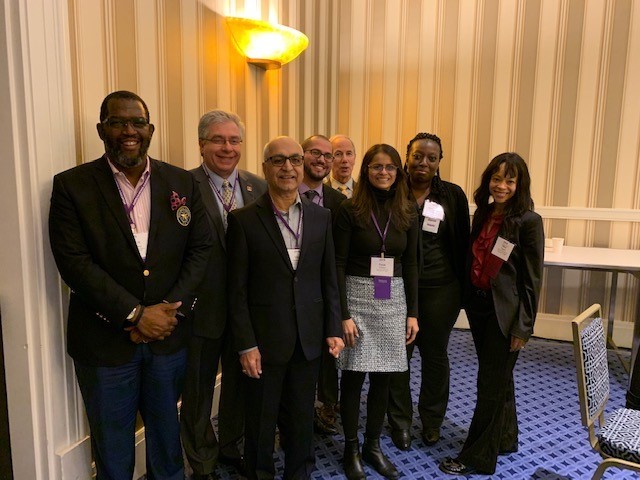In early November, the Endocrine Society attended the American Medical Association (AMA) House of Delegates meeting to establish policy positions on topics of importance to patients and healthcare providers. Our delegation is comprised of Society members Amanda Bell, MD, Palak Choksi, MD, Shivani Agarwal, MD, Barbara Onumah, MD, Robert Vigersky, MD, and Daniel Spratt, MD.
The Society attends the AMA meetings to further our policy agenda by garnering the support of the House of Medicine on issues of importance to our members. This enables us to take that message to Capitol Hill and federal agencies as an additional means of support. In addition to passing policy that supports the Society’s priorities, we also fight against passage of policy that will be detrimental to endocrinologists or the patients that they treat.

Policy proposals passed or referred for further study at the House of Delegates meeting that address Society priorities included collection of public health data on sexual orientation and gender identity, affirmation that gender identity falls across a spectrum, and ensuring healthy foods are available to all. The most relevant endocrine-related issue debated concerned gender assignment surgery in infants with differences of sex development (DSD). Resolutions have been considered at past AMA meetings that called for a ban on all surgeries until the child is old enough to participate in the decision, unless there is a life-threatening medical need. Opponents of early surgery argue that there are instances where the individual does not identify with the gender chosen for them at the time of birth and ultimately suffers harm. While others do not necessarily believe that surgery should be done at the time of birth in all cases, they do believe that the parents should be able to make the decision for their child based on an understanding of all available options.
These resolutions were ultimately referred to the AMA’s Council on Ethical and Judicial Affairs, which offered an ethical opinion at the November meeting. The report does not adjudicate clinical disagreement or prescribe what manner of decision is “correct” or “best,” but rather clarifies the values at issue and identified what factors must be considered to arrive at an ethically sound decision in any given patient’s unique situation.
The report updates existing policy on pediatric decision making and lays out recommendations for physicians who care for these patients, which includes, but is not limited to:
- Develop an individualized plan of care that will best serve the patient, basing treatment recommendations on the best available evidence and in general preferring alternatives that will not foreclose important future choices by the adolescent and adult the patient will become.
- Work with parents/guardians to simplify complex treatment regimens whenever possible and educate parents/guardians in ways to avoid behaviors that will put the child or others at risk.
- Provide a supportive environment and encourage parents/guardians to discuss the child’s health status with the patient. Physicians should offer education and support to minimize the psychosocial impact of socially or culturally sensitive care.
- When it is not clear whether a specific intervention promotes the patient’s interests, respect the decision of the patient (if the patient has capacity and is able to express a preference) and parents/guardians.
- When there is ongoing disagreement, seek consultation with an ethics committee or other institutional resource.
The next meeting of the AMA will be in June 2019. We encourage any member with questions or suggestions for resolutions that the Society could sponsor at an upcoming meeting to contact Stephanie Kutler, Director, Advocacy & Policy, at [email protected].

